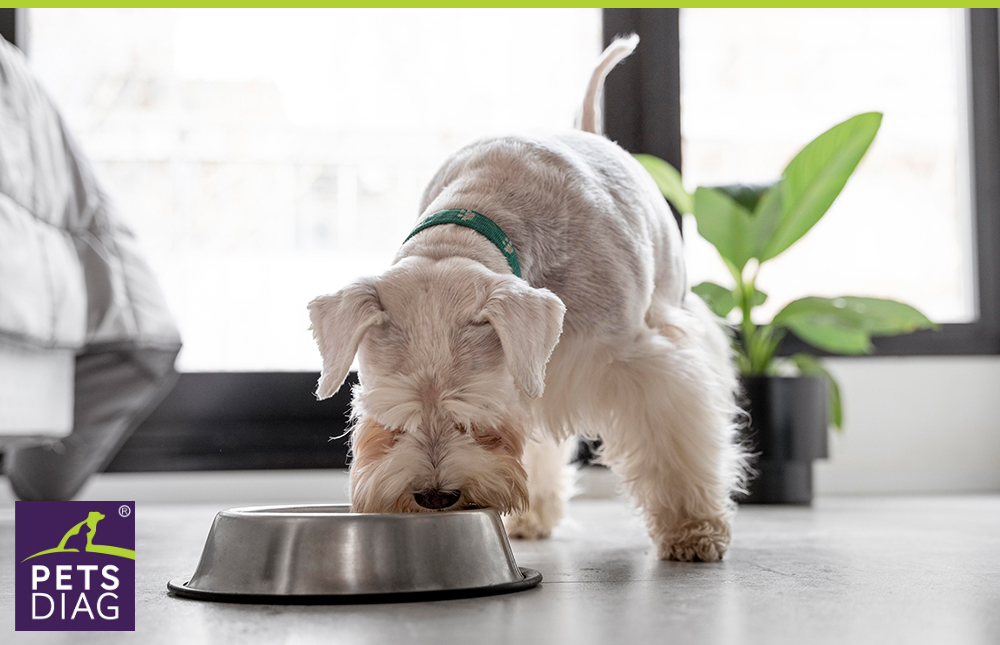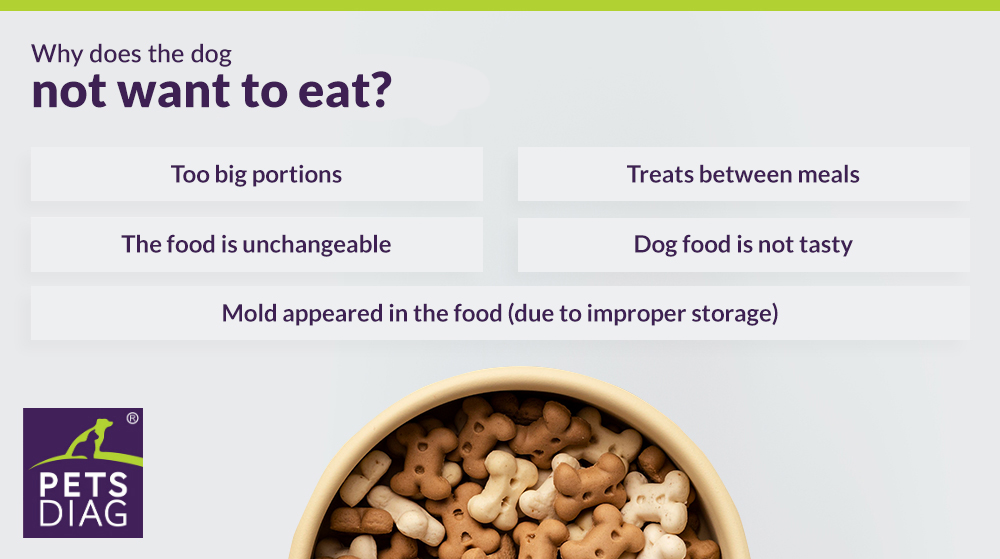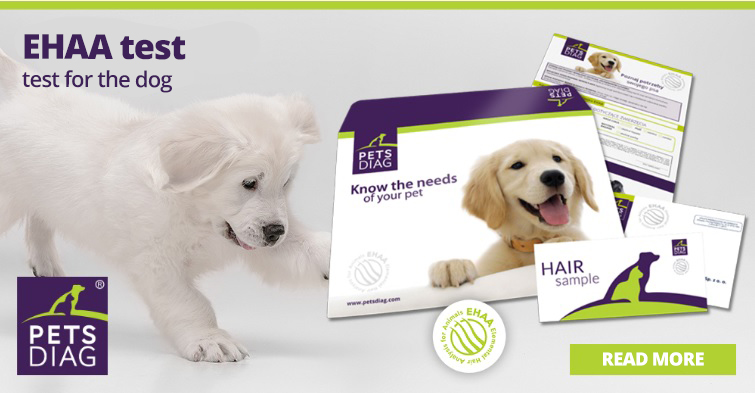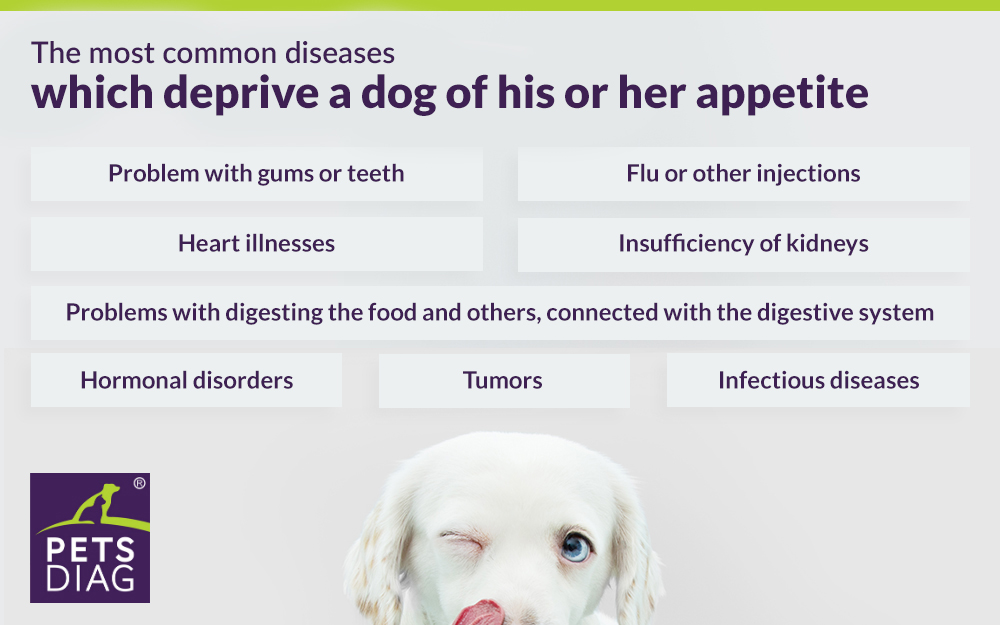We used to take a dog’s good appetite as a sign of his or her health. When they suddenly lose appetite, the question arises: why does the dog refuse to eat? There may be many reasons for this. Some of them are trivial, others serious and require urgent vet consultation. In our article, we will tell you what the most common causes of the lack of appetite in animals are and what to do when a dog refuses to eat.
Dog’s lack of appetite – causes
These can be trivial matters, but also serious diseases, even life-threatening. However, let’s start with the simplest causes of a dog’s lack of appetite.
Perhaps the dog doesn’t want to eat dry food because it is simply overfed. This situation often occurs when the animal has unrestricted access to food at any time of the day. Usually, if you give him or her a full bowl, he won’t understand not to eat it all at once. Many owners add further portions of food with the thought that the animal is still hungry. It’s even worse when they get extra treats between meals. Maybe the dog does not want to eat food, thinking that it will get something tastier? Or maybe we require them to eat too large portions? Or maybe the dog doesn’t want to eat dog’s food because someone has already fed it before us? Remember that it is much wiser to give your dog two meals at a fixed time of the day.
-
The quality of the food served
It is also very important. Remember that animals, like humans, do not want to eat something that they simply do not like. If the dog does not want to eat dry food, we can try to replace it with another. Perhaps a different taste or additional nutritional values will make the animal look at the bowl more eagerly. Remember that the dog is not a vacuum cleaner that will eat any leftovers from the table. He/She should eat the food that is intended for him/her. A dog’s stomach is significantly different from that of a human, so we need to give it reasonable portions. For example, a dog should not eat onions, chocolate, raisins, or grapes.
Appetite and stressful situations
Another important reason why a dog refuses to eat is stressful situations.
It is always a very nervous moment for a pet – both an unknown place and the vet himself or herself. Perhaps vaccination is the cause of the dog’s lack of appetite. However, this will not be a long-term reason why the dog refuses to eat.
Does the dog not want to eat, but only drinks? While most dogs are real foodies, gobbling up whatever falls into their bowl, a stressed pet usually stops eating when it changes his or her surroundings. The problem may also be the emergence of a new family member. Remember that animals also have emotions that guide them.
The dog suddenly lost its appetite while being cared for by someone else? It is a reaction to separation and a sign that the dog is missing. The first days when he or she is taken care of by someone else can prove very stressful for him or her. It is very difficult for the dog to bear the separation from the owner. It may even be that the animal will not regain appetite until its owner returns. A dog can be depressed, inactive and reluctant to do anything when its master or mistress is not with him or her.
Home remedies for a dog’s lack of appetite
What to do if the dog refuses to eat? To stimulate your pet’s appetite, try some simple home remedies. For example, we can start mixing food with warm water so that its smell spreads faster, or we can lightly heat the dog’s food before serving. As mentioned above, the cause of the dog’s lack of appetite may be overfeeding, so one of the ways to make them regain the desire to eat is to simply reduce the portions given so far and stop feeding the animal between meals. Increasing your current physical activity will also help. By taking your pet for long walks and organizing active games in the fresh air, it will look at the bowl more eagerly.
What to do when a dog refuses to eat – studies
If we are not able to help the dog ourselves, it’s useful to make use of the possibilities of modern research. In our online shop, you can order a special EHAA kit for your dog. It’s very detailed research, which will help to find where the problem is, but also will help with choosing the optimal diet and supplementation tailored to your dog’s needs. Elemental hair analysis EHAA is not an invasive test, which allows for achieving a reliable result of levels of nutritional and toxic elements in the body.
The dog does not want to eat food – consultation with vet
It very often happens that the reason for the decrease in appetite is a specific disease or a developing one. Is the dog refusing to eat and vomiting? Is he or she inactive, unable to move, has a problem with defecation? Time to visit the veterinarian. A reluctance to eat cannot be understood as a normal situation. If a sick dog does not want to eat, it is necessary to see a specialist.
What to do if the dog refuses to eat for a long time? In this situation, it is worth asking questions about what food he or she ate every day and whether he or she has undergone all vaccinations. The vet may then order the necessary tests and food changes. In such a situation, further observation of the animal will be necessary.
That’s not a problem when a dog does not eat one meal. It’s better when he or she is a little bit hungry than overfed. The first thing is that we cannot panic. So, what to do when a dog does not want to eat? We need to remember that no appetite is not always caused because of illness. But if an old dog does not want to eat and drink, but so far, he or she was eating everything normally, consultation with a vet will be necessary.
















